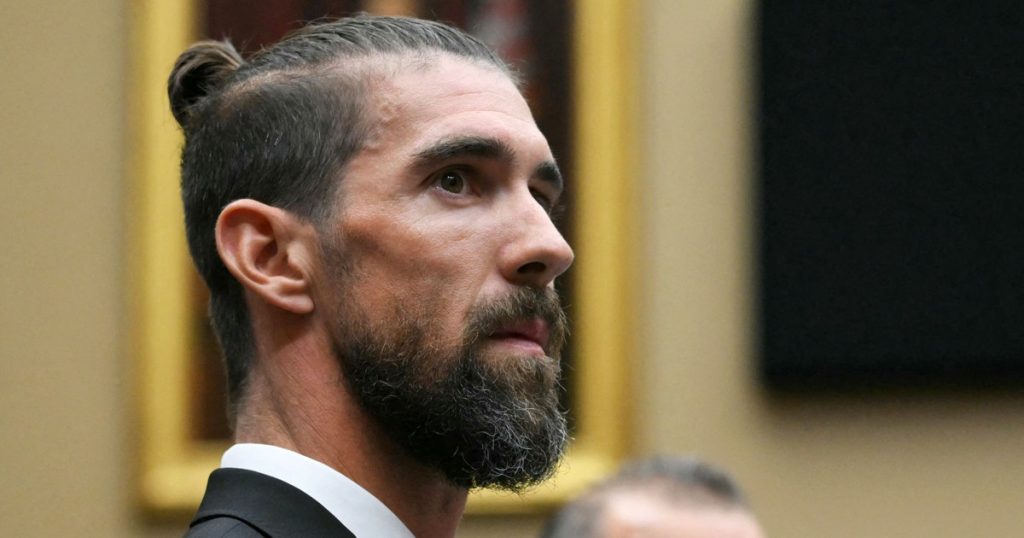Former Olympic champions Michael Phelps and Allison Schmitt expressed their lack of faith in the World Anti-Doping Agency (WADA) to eliminate cheaters from their sports ahead of the upcoming Summer Games in Paris. Their comments came in response to the revelation that 23 Chinese swimmers had tested positive for a banned heart medication before the Tokyo Olympics in 2021 but were still allowed to compete. Phelps, a 23-time Olympic gold medalist, and Schmitt, a four-time gold medalist, expressed disappointment in the handling of the situation, particularly because some of the Chinese swimmers went on to win medals.
Phelps and Schmitt testified before a House subcommittee about their concerns regarding WADA’s effectiveness in addressing doping issues in international sports. They both expressed frustration at the lack of progress and accountability within the organization since Phelps’s previous testimony seven years ago regarding Russian state-sponsored doping. The athletes emphasized the importance of fair competition and the integrity of international sports, which they feel is compromised by WADA’s failures to address systemic issues.
The global doping regulator accepted the explanation provided by Chinese anti-doping officials, attributing the positive tests to contaminated food at a hotel due to Covid-19 pandemic restrictions preventing further investigation. However, independent anti-doping experts, including USADA CEO Travis Tygart, have challenged this explanation, calling it “outrageous.” The lack of transparency and accountability in this case has raised doubts about the effectiveness of WADA in upholding fair competition and protecting clean athletes.
In response to the criticism and concerns raised by athletes and anti-doping advocates, WADA appointed an independent investigator, Swiss prosecutor Eric Cottier, to review its handling of the China case. However, critics have pointed out potential conflicts of interest in Cottier’s appointment, further undermining confidence in the investigative process. The controversy surrounding the handling of the Chinese swimmers’ doping violations has highlighted the need for reforms within WADA to ensure greater transparency and accountability in its operations.
The United States is the largest contributor to WADA, providing nearly $3.7 million in funding this year, while China has contributed more than its required dues since 2018. Tygart called on the U.S. to condition its future funding of WADA on meaningful reforms within the organization to address the concerns raised by athletes and anti-doping advocates. The issue of funding and oversight of WADA has become a focal point in the debate over how best to address doping in international sports and uphold the principles of fair competition and clean sport.
The testimonies of Michael Phelps, Allison Schmitt, and Travis Tygart have underscored the challenges and shortcomings of the current anti-doping system in international sports. The need for greater accountability, transparency, and integrity in the fight against doping has become more urgent in light of recent controversies and failures to address systemic issues within WADA. As athletes prepare for the upcoming Summer Games in Paris, the call for reform within the global anti-doping system is growing louder, with advocates pushing for meaningful changes to restore trust and credibility in the fight against doping.


